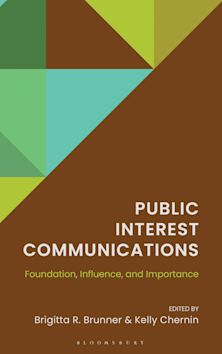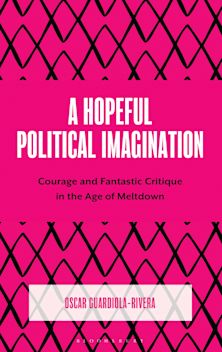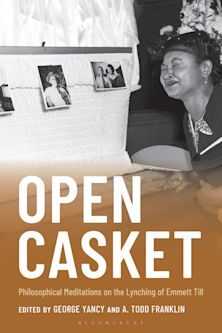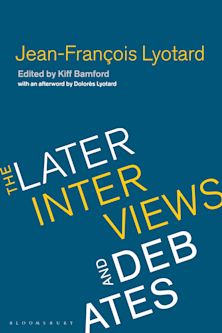- Home
- ACADEMIC
- Philosophy
- Social and Political Philosophy
- The Politics of Virtue
The Politics of Virtue
Post-Liberalism and the Human Future
The Politics of Virtue
Post-Liberalism and the Human Future
You must sign in to add this item to your wishlist. Please sign in or create an account
Description
Contemporary politics is dominated by a liberal creed that champions ‘negative liberty’ and individual happiness. This creed undergirds positions on both the right and the left – free-market capitalism, state bureaucracy and individualism in social life. The triumph of liberalism has had the effect of subordinating human association and the common good to narrow self-interest and short-term utility. By contrast, post-liberalism promotes individual fulfilment and mutual flourishing based on shared goals that have more substantive content than the formal abstractions of liberal law and contract, and yet are also adaptable to different cultural and local traditions.
In this important book, John Milbank and Adrian Pabst apply this analysis to the economy, politics, culture, and international affairs. In each case, having diagnosed the crisis of liberalism, they propose post-liberal alternatives, notably new concepts and fresh policy ideas. They demonstrate that, amid the current crisis, post-liberalism is a programme that could define a new politics of virtue and the common good.
Table of Contents
Product details
| Published | 22 Aug 2016 |
|---|---|
| Format | Ebook (Epub & Mobi) |
| Edition | 1st |
| Extent | 368 |
| ISBN | 9781783486502 |
| Imprint | Rowman & Littlefield Publishers |
| Series | Future Perfect: Images of the Time to Come in Philosophy, Politics and Cultural Studies |
| Publisher | Bloomsbury Publishing |
About the contributors
Reviews
-
Most critiques of liberalism in the past 200 years—from Marxism, feminism, and poststructuralism—come from the political left. In The Politics of Virtue, Milbank (Nottingham) and Pabst (Kent) challenge liberalism from the right, advocating for a “conservative socialism." Influenced by postmodernism, the authors argue that liberalism destroys itself by abstracting from the human good and treating each individual impersonally, thereby allowing ever more authoritarian tendencies into liberal politics in order to maintain control over a populace whose desires are unfettered by traditional social order. In place of liberalism’s primacy of individual rights, the authors defend the primacy of associations of all kinds—religions, regions, localities, unions, voluntary organizations—that arouse citizens’ sense of civic duty and responsibility, and check the centralizing tendency of liberal governments. The book has five synoptic parts—politics, economy, polity, culture, and world—and matches its ambitious scope with the difficult project to bring abstract theoretical discussion down to policy specifics. What emerges is an exciting, enthralling alternative, though the authors remain unclear about which liberalism they take aim at—there are now many liberalisms in theory and practice. Summing Up: Recommended. Upper-division undergraduates through faculty.
Choice Reviews
-
This book is at once profoundly disturbing yet also compelling, and full of exciting ideas about how to moralise the market and reclaim democracy. It stands as a signature contribution in the emerging debates around post-liberalism and provides real hope as we apparently slide into a post-truth world
Prospect
-
This book could perhaps be called prophetic.... Milbank and Pabst extensively argue these formidable claims, with passion, flair, and flourish and across the fields of politics, economics, constitutional polity, culture, and international relations.... This is a profound and often brilliant cry to recognize the procedural follies and criminalized economics that have converged to undermine the social and cultural relatedness and embeddedness that constitute the true goods of human existence.
The Christian Century
-
The Politics of Virtueis clearly an intellectual tour de force. It deals with all the major problems, crises, and metacrises of our time—and does so with intelligence and moral (not moralizing) passion. There surely is an urgent need for both qualities in our contemporary world, ravaged as it is by massive corruption, exploitation, ecological devastation, and the stark danger of nuclear holocaust. To deal with its multiple topics, the book marshals an enviable breadth of expertise, cutting across the usual barriers between politics, economics, psychology, anthropology, philosophy, and theology. One can only wish that academic border-crossing of this kind would become a more widespread habit. Needless to say, in my above account, I could only touch on some highlights of the book. Actually, the text is chockfull of valuable insights—sometimes provocative insights—on numerous topics…. [O]ne can only wish the book the largest possible readership.
The Review of Politics
-
Amidst the rising chorus of voices calling for the renewal of grassroots democracy, Milbank and Pabst sound a distinctive “blue” note. The languages of individual virtue and public honor, they urge, must be redeployed to meet human needs for belonging and embeddedness while revitalizing citizen participation in government. It is possible, they argue, to draw on the very energies that feed attacks on big government and fuel populism to cultivate instead a politics of hope that joins patriotism with international solidarity. Given the political impasses we face today, their astute proposal merits a wide hearing.
Jennifer A. Herdt, Gilbert L. Stark Professor of Christian Ethics, Yale Divinity School
-
This is a vital contribution within an emerging literature and emboldened public conversation around what constitutes the common good. Drawing on ancient traditions it is full of philosophical insight and concrete, practical political suggestion. It challenges the most basic assumptions of liberalism; it is quietly devastating.
Jon Cruddas, MP

ONLINE RESOURCES
Bloomsbury Collections
This book is available on Bloomsbury Collections where your library has access.



































